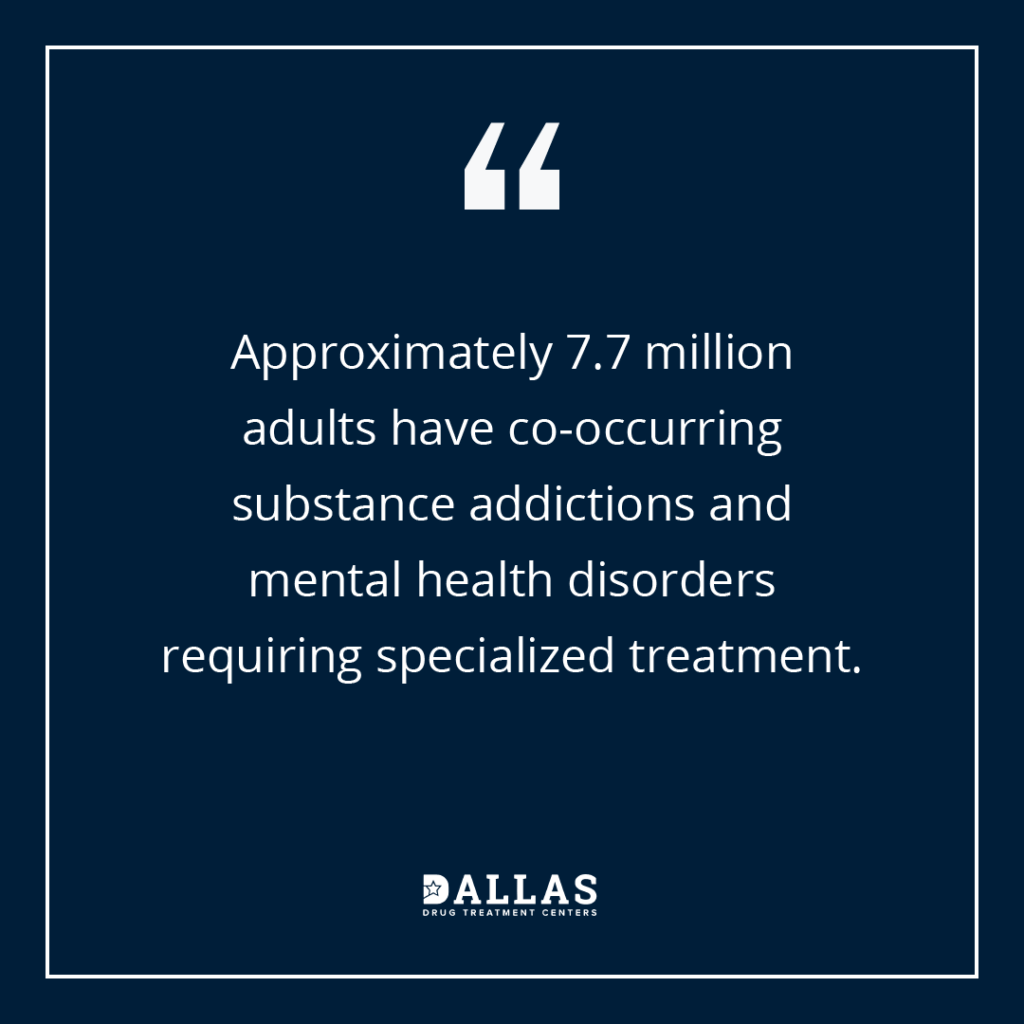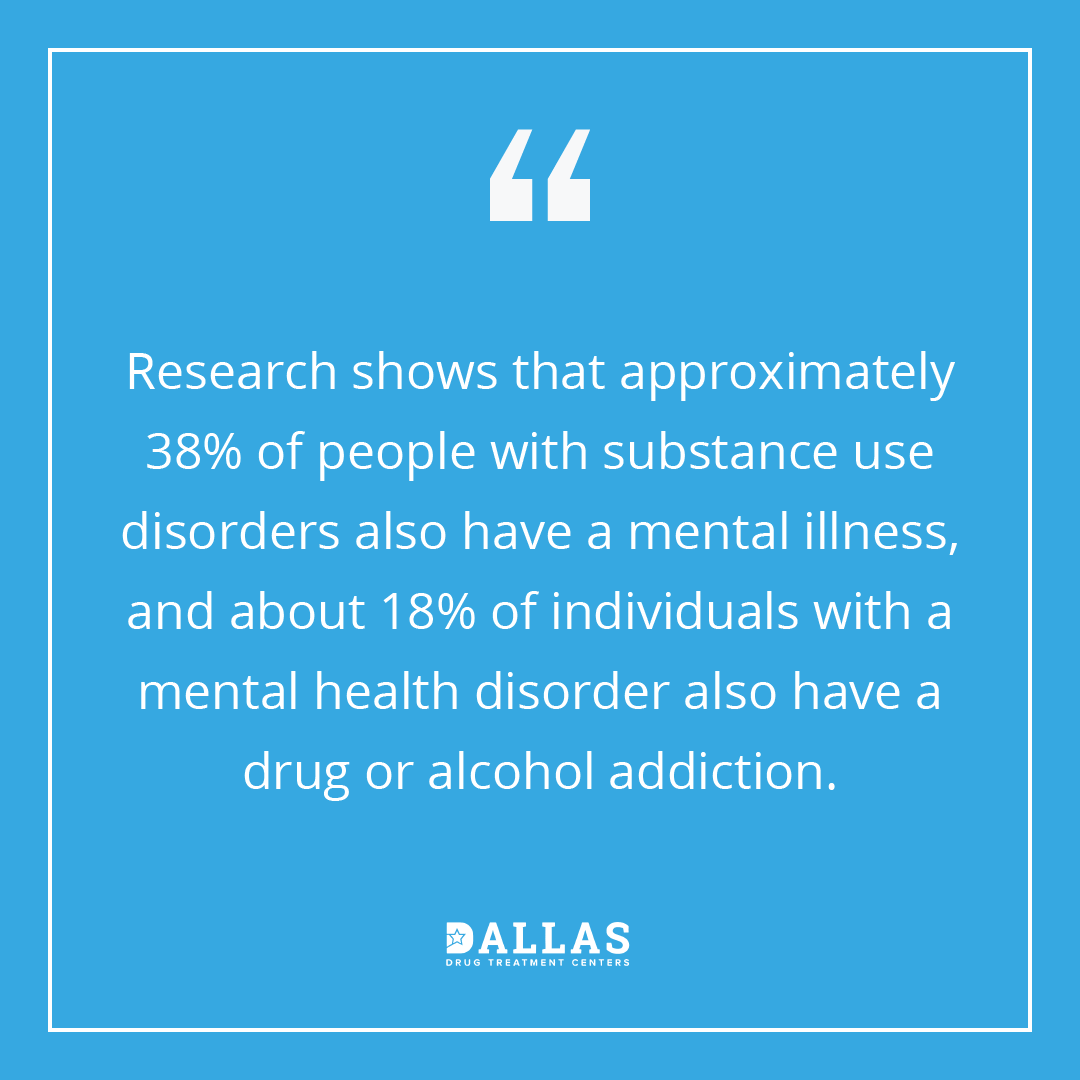Dual diagnosis refers to the presence of two co-occurring or comorbid disorders, such as substance addiction and a mental health condition, such as depression, anxiety, or post-traumatic stress disorder (PTSD). These two conditions typically exacerbate the course and outcome of both. Approximately 7.7 million adults have co-occurring substance addictions and mental health disorders requiring specialized treatment. Only about 9% of individuals with a dual diagnosis received treatment for both conditions.1
In Texas, over 1 million people struggle with a substance use disorder and more than 800,000 people have a serious mental illness—many of these people may struggle with both.2 Dual diagnosis treatment programs in Dallas, TX provide integrated care that adequately addresses both the addiction and psychiatric illness. Without comprehensive treatment at a Dallas rehab, you may have an increased risk of relapse.


